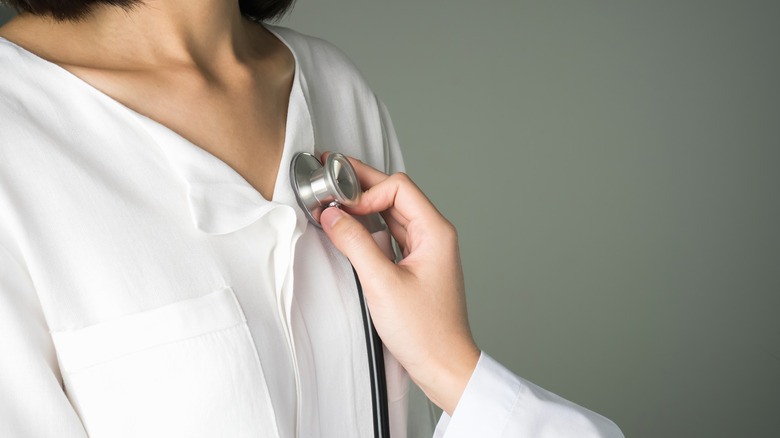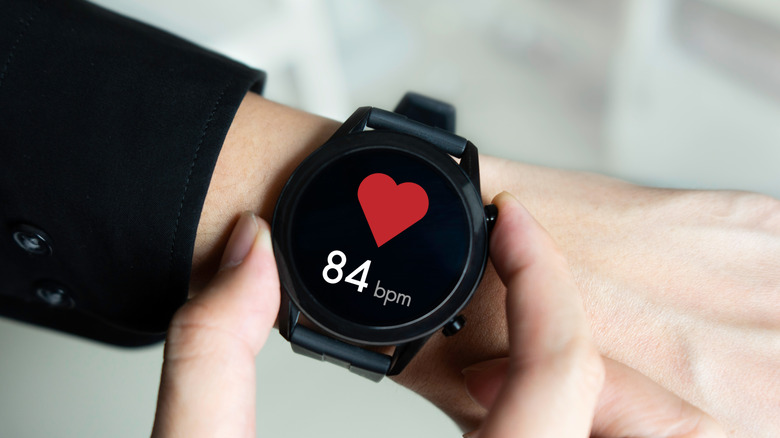The Real Reason Doctors Measure Your Heart Rate
Chances are if you have ever had a medical check-up, including your annual physical exam, you've also had a doctor measure your heart rate. Heart rate measurements are an integral part of your "vital signs," which also include body temperature and respiration rate, according to Johns Hopkins. Doctors can learn a lot about the state of your health from these seemingly simple measurements, and your heart rate itself tells them much about that very important organ and how well it is functioning.
The normal healthy heart rate for most people lies between 60 to 100 beats per minute, according to Dr. Robert H. Shmerling (via Harvard Health). Anything lower than 60 beats per minute is considered a "slow" heart rate, aka bradycardia, while anything over 100 beats per minute is considered a "fast" heart rate, aka tachycardia. Each of these conditions is associated with particular medical conditions or problems.
Fast and slow heart rates
A slow heart rate can be a sign of good health and is common in very physically fit people like runners and other athletes, who often have resting heart rates as low as 40 beats per minute, according to Johns Hopkins. But a slow heart rate can also be a sign of health problems including heart disease, infections like Lyme disease or typhoid fever, and an underactive thyroid gland (via Harvard Health). A doctor can determine what the cause of your slow heart rate is and also whether it's a sign of a healthy and active lifestyle or a warning sign for other complications.
When it comes to a fast heart rate, there are quite a few more dangerous possibilities, according to Dr. Shmerling, but healthy people often have elevated rates due to recent exercise, stimulants like caffeine, and feeling anxious or nervous (via Harvard Health). Barring these temporary causes of fast heart rate, the condition can be linked to serious medical issues like anemia, heart problems, an overactive thyroid, asthma, and hypokalemia (low potassium), as well as a side effect from certain medications. According to the Mayo Clinic, if untreated, fast heart rates can lead to very serious problems like stroke, sudden cardiac arrest, and heart failure.
When to see a doctor
If you feel like your heart rate has changed, and especially if you experience tachycardia (fast heart rate) it is a good idea to get a check-up. When doctors measure your heart rate, they are on the lookout for all potential problems, meaning keeping up those annual exams is an essential part of your medical upkeep and should not be taken for granted.
Fast heart rate can cause other uncomfortable symptoms including chest pain, lightheadedness, shortness of breath, and fainting. A doctor needs to check your heart rate and determine the cause of your fast heart rate as well as check for irregular heart rhythms (arrythmias), which often accompany tachycardia, according to the Mayo Clinic.
If you have an arrhythmia, you could have a condition — like atrial fibrillation, ventricular tachycardia, or ventricular fibrillation — that requires medical treatment, according to the Mayo Clinic. Ventricular tachycardia, in particular, can become life-threatening.



